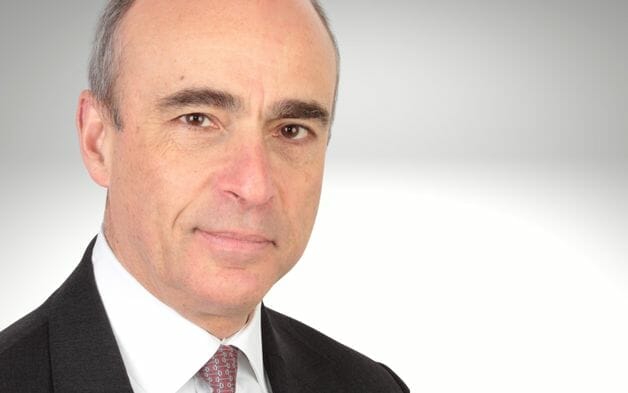Examining and learning from the evolution of orthodox finance provides relevant insight to the evolution of ESG data and ISSB standards which like CAPM are simply social conventions. Greg Watson argues that adopting a “no single right way” mindset will create greater resilience in investment by promoting greater differentiation.
Increasingly heated debates on ESG investing and sustainability highlight the importance of a new mindset in finance.
The competitive landscape is described well by Bob Eccles: The balance of future practice is likely to be determined by a middle ground of investors who may be sympathetic to ESG but are wary of its inconsistencies and contradictions.
The key to reconciling the many competing positions is recognising how, hidden in plain sight, sustainability has ignited a revolution in finance’s use of “real-world” information. Fuelled by new data technologies, this up-ends the current theory foundations of orthodox finance, with significant practical implications.
Consequently, a new mindset is needed which recognises that finance and sustainability tools are simply social conventions: there is no single “right” way. Instead, such tools should be judged by pragmatism – specifically by whether they can build support quickly, deliver targeted real-world objectives, and evolve effectively over time.
The new mindset will prevent debate blocking action and help manage what comes next, not just measuring outcomes but also encouraging the behaviours that will bring change about.
Changing the mindset starts by understanding the reasons why some obviously flawed financial modelling theories and practices have persisted for the last 40 years.
IS CAPM STILL APPROPRIATE?
The key example is the original Capital Asset Pricing Model (CAPM), a crucial part of Modern Portfolio Theory. After evolving over two decades, CAPM became dominant for valuations in just a few years in the 1980s. It remains the standard today.
It was already easy to critique CAPM 20 years ago. Its flaws included contradictory empirical evidence, risk defined by historic relative share price movements rather than real-world factors, ignored market imperfections, oversimplified equilibria, high sensitivity to growth and risk assumptions, and implausibly high long-term return assumptions in aggregate.
It was much harder to explain how CAPM’s dominant use arose and persisted.
Doing so required recognising that finance tools like CAPM – and now ESG data and the ISSB’s standards – are simply social conventions.
The reference to convention means there is no single “right” approach. Instead, social conventions compete with one another, the winners becoming accepted and reinforced by a community of users, with relevant standards and teaching. When change comes, it comes quickly.
Finance and sustainability tools both grapple with the highly complex social world, which has unpredictable dynamics. Moreover, models change the behaviour of the entities they are seeking to explain – in the language of social theorists they are reflexive and performative. The combination makes social behaviour impossible to model correctly using formal mathematics as CAPM seeks to do.
CAPM nevertheless won by creating the impression of certainty. Its evolution was enabled by a new technology – the PC. For a myriad decision takers, its apparent authority overcame its weaknesses. There was seemingly no alternative.
Today, new sustainability outcome data, new technologies such as AI and natural language processing, new ways to understand cause and effect using anthropology and narrative, new activist investment models and the rise of universal investors create the foundations for fundamental change.
These new foundations are now mature. It is nearly two decades since leading investors first identified that environmental impact’s correlation to risk and return could be positive. Empirical testing is well beyond that at CAPM’s launch. Complex technological innovations typically take this long to evolve.
Permanent change is inevitable, as new non-financial information, impact weighted accounts and net-zero pledges make it impossible to ignore the risk and return consequences of sustainability.
The big question is whether change will be managed effectively and on time. Doing so depends on swiftly overcoming traditional siloed thinking and demands for certainty, while managing complexity and maintaining the culture of discipline on which finance depends.
no single right way
The heart of the mindset advocated is recognising explicitly that there will not, nor ever can, be “perfect” solutions: there is “No Single Right Way”.
Instead, sustainability and finance tools alike need to be judged by whether they are “constructively pragmatic”.
Constructive pragmatism means building support quickly, delivering targeted real-world objectives, and evolving effectively over time.
In the new mindset, instead of exhaustive back testing and looking to the past, or to theoretically ideal views of the future, new tools should be designed based on first principles (abductive logic, relevance and common-sense) and developed at scale in fast, collaborative tests. The tests should be designed for active stewardship, empirical testing against intended objectives, transparency, rapid failure, learning and improvement.
The objectives need to be absolute, real-world measures rather than the relative targets of orthodox finance, including items with high intrinsic value which are hard to quantify. Realistic expectations about the level of certainty will help users overcome complexity.
Taking the ISSB as an example, constructive pragmatism boils down to whether it can quickly win support from companies, investors, nations, and activists to create a global baseline for sustainability reporting to investors. It will then need to show how it has supported local regulation, and that dynamic materiality has allowed sustainability metrics to evolve effectively as circumstances change.
The new mindset must also encourage new ways to enable change to go faster and further, such as systematically better collaboration, as well as evolving valuation practices to integrate sustainability, stakeholders, and innovation.
The no single right way mindset will create greater resilience in investment by promoting greater differentiation.
Consequently, the sustainability ignited, real-world information revolution also heralds massive changes in competition, collaboration and innovation in the investment industry itself.
Greg Watson is currently catalysing an initiative to encourage better innovation partnering through active investment stewardship. An extended version of this article is available here.



